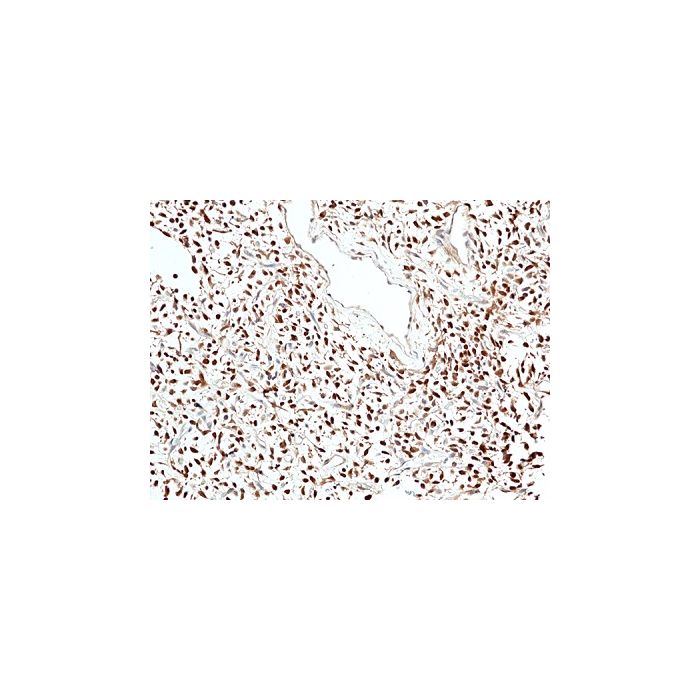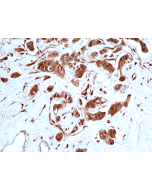Cookie Policy: This site uses cookies to improve your experience. You can find out more about our use of cookies in our Privacy Policy. By continuing to browse this site you agree to our use of cookies.
RevMab
anti-Stat6, Rabbit Monoclonal (RM473)

| Product Details | |
|---|---|
| Synonyms | Signal Transducer and Activator of Transcription 6 |
| Product Type | Recombinant Antibody |
| Properties | |
| Clone | RM473 |
| Isotype | Rabbit IgG |
| Source/Host | Rabbit |
| Immunogen/Antigen | A peptide corresponding to residues near the C-terminus of human Stat6. |
| Application |
IHC: 1:100 - 1:200 WB: 1:1000 - 1:2500 |
| Crossreactivity | Human |
| Specificity |
RM473 reacts to human Stat6. |
| Purity | Protein A purified. |
| Purity Detail | Protein A affinity purified from an animal origin-free culture supernatant. |
| Formulation | Liquid. 50% Glycerol/PBS with 1% BSA and 0.09% sodium azide. |
| Isotype Negative Control | |
| Other Product Data |
Click here for Original Manufacturer Product Datasheet |
| Accession Number | P42226 |
| Declaration | Manufactured by RevMab Biosciences. |
| Shipping and Handling | |
| Shipping | BLUE ICE |
| Long Term Storage | -20°C |
| Handling Advice | Avoid freeze/thaw cycles. |
| Use/Stability | Stable for at least 1 year after receipt when stored at -20°C. |
| Documents | |
| Product Specification Sheet | |
| Datasheet |
 Download PDF Download PDF |
STAT6 (Signal transducer and activator of transcription 6) is a transcription factor that belongs to the Signal Transducer and Activator of Transcription (STAT) family of proteins. The proteins of STAT family transmit signals from a receptor complex to the nucleus and activate gene expression. STAT6 is activated by the binding of interleukin-4 (IL-4) to its receptor. IL-4 is a cytokine that is produced by T cells, B cells, and mast cells. When IL-4 binds to its receptor, it triggers a series of events that lead to the phosphorylation of STAT6. Phosphorylated STAT6 then dimerizes and translocates to the nucleus, where it binds to DNA and activates the transcription of a number of genes. The genes that are activated by STAT6 play a role in a number of different biological processes, including Th2 cell differentiation, IgE production, eosinophil differentiation, mast cell activation and is involved in the development of some types of cancer.






